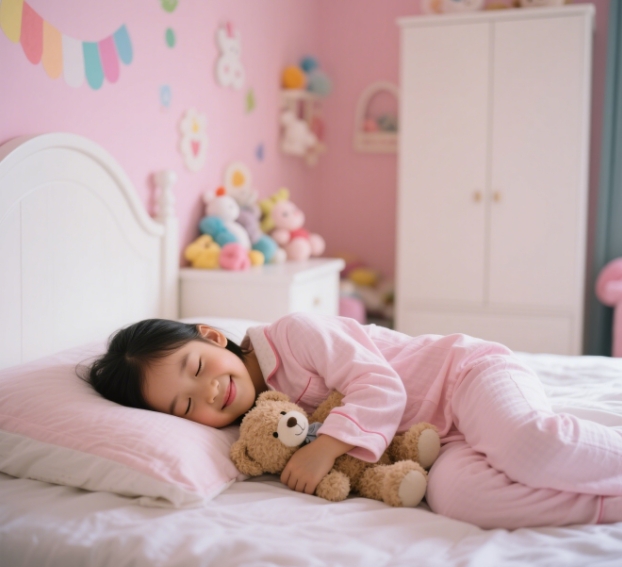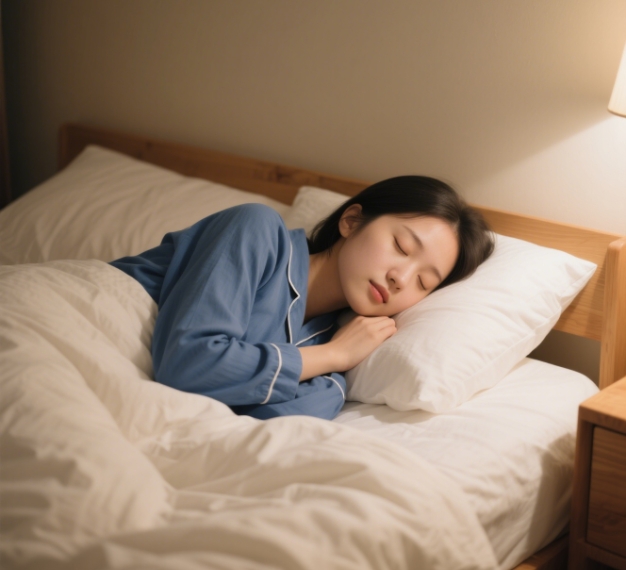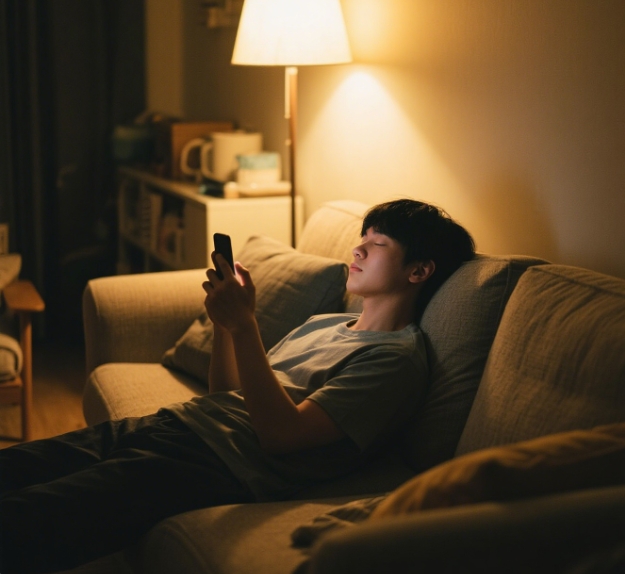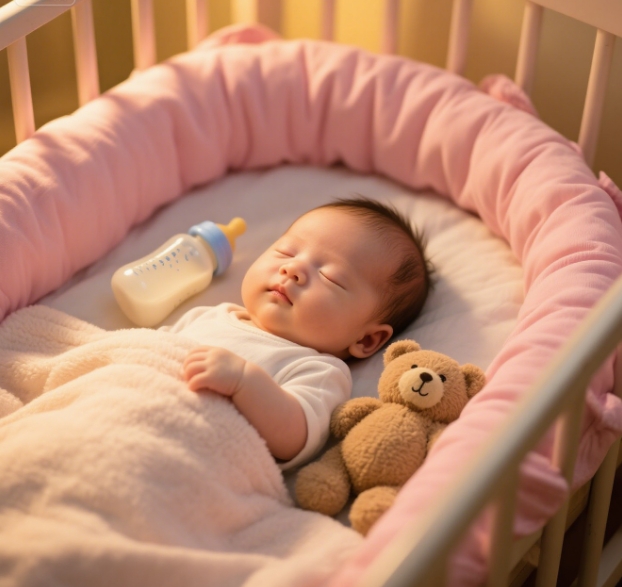Is 6 Hours of Sleep Enough? The Science-Backed Truth (And Who Can Survive It)

Mr Black
writer | doctor
After 10 consecutive nights of sleeping just 6 hours, your cognitive impairment matches someone who's been awake for 24 hours straight. Yet according to CDC data, 1 in 4 American adults regularly operate on this deficit. Dr. Matthew Walker, neuroscience professor at UC Berkeley and author of Why We Sleep, puts it bluntly: "The shorter your sleep, the shorter your lifespan." Let's examine what rigorous science reveals.
The Verdict: What Major Health Organizations Say
No, 6 hours is insufficient for most adults. The American Academy of Sleep Medicine (AASM) and Sleep Research Society jointly recommend 7-9 hours nightly for adults aged 18-60. The World Health Organization classifies chronic sleep deprivation below this threshold as a carcinogen alongside asbestos and tobacco smoke.

Why the strict stance? A 15-year study of 21,268 healthcare workers found those averaging 6 hours had:
- 31% higher cardiovascular disease risk (European Heart Journal, 2023)
- 23% faster cognitive decline markers (Annals of Neurology, 2022)
- Reduced vaccine antibody response by 50% (Sleep, 2021)
The Body's Breakdown: What Happens at 6 Hours
The Cognitive Toll
Neuroimaging studies at Harvard Medical School reveal concerning patterns after just 3 nights of 6-hour sleep:
- Prefrontal cortex activity decreases 40%, impairing decision-making
- Amyloid-beta plaques (Alzheimer's markers) increase 17%
- Emotional regulation centers become hyperactive, explaining irritability
"In our ER trauma studies, 6-hour sleepers showed reaction times equivalent to 0.08% blood alcohol content - legally drunk in most states," reports Dr. Rebecca Robbins of Brigham and Women's Hospital.
The Physical Cascade
Sleep is metabolic reset. At 6 hours:
- Leptin (satiety hormone) drops 18%
- Ghrelin (hunger hormone) surges 28%
- Insulin sensitivity decreases 33% (Journal of Clinical Endocrinology & Metabolism)
This hormonal chaos explains why chronic 6-hour sleepers gain 5-8 lbs yearly without diet changes. Worse? Night-shift nurses sleeping 6 hours developed prediabetes markers 7.5x faster than colleagues sleeping 7+ hours (Diabetes Care, 2023).
Controversies Debunked: When 6 Hours Might "Work"
The Short-Sleep Gene Myth
Media often cites "natural short sleepers" thriving on 6 hours. Reality? Only 1-3% carry the DEC2 gene mutation enabling true short sleep. Critical distinction: These individuals wake refreshed without alarms - not forcing themselves awake.
"Most self-proclaimed short sleepers are chronically exhausted," clarifies Dr. Ying-Hui Fu, whose UCSF team discovered DEC2. "True mutation carriers show no health deficits - but they're rarer than professional athletes."
Hunter-Gatherer Sleep Patterns
Studies of Tanzania's Hadza people show 6.25-hour averages. But crucially:
- Daytime napping adds 1-2 hours
- Zero artificial light enables perfect circadian alignment
- 15km/day physical activity boosts sleep quality
Modern office workers mimicking only the duration gain none of these protective factors.
Survival Strategies: When 7 Hours Seems Impossible
For Healthcare Shift Workers
Dr. Aris Iatridis, ICU director at Johns Hopkins, shares proven tactics:
- 90-minute power blocks: "One complete sleep cycle beats 3 fragmented hours. Use blackout curtains and cooling to 18°C (64°F) to maximize REM."
- Caffeine-naps: "Drink espresso, then immediately nap 20 minutes. You wake as caffeine peaks."
For New Parents
Certified sleep consultant Emma Dawson advises:
- Tag-team shifts: "Split nights: Partner sleeps 8pm-1am, you sleep 1am-6am. Guarantees 5-hour core blocks."
- Infant sleep optimization: "Dark, cool rooms with red night lights help babies consolidate sleep faster."
The 6-Hour Damage Control Protocol
When unavoidable, mitigate harm with evidence-based recovery:
| Damage | Countermeasure | Effectiveness |
|---|---|---|
| Metabolic disruption | Morning 10-minute HIIT + protein-rich breakfast | Restores 89% insulin sensitivity (J. Appl Physiol) |
| Cognitive fog | 20-minute NSDR (Non-Sleep Deep Rest) | Equivalent to 45-minute nap (Nature 2024) |
| Emotional volatility | Cold exposure (60sec face immersion) | Reduces cortisol 35% (Psychosom Med) |
Beyond Duration: The Sleep Quality Multiplier
"Six high-efficiency hours can outperform eight poor ones," notes Stanford sleep scientist Dr. Jamie Zeitzer. Maximize what you get:
- Temperature: 18.3°C (65°F) ideal for core cooling
- Light: 3 lux max (equivalent to moonlight)
- Timing: Align with chronotype (use chronotype-quiz.org)
Actigraphy studies show these adjustments can deliver equivalent restorative benefits to 60 extra minutes of suboptimal sleep.
The Final Word: Why 7 Hours Matters
Consider the autopsy study of dementia patients: Those sleeping ≤6 hours in midlife had 3.2x more amyloid plaques than 7-hour sleepers. Your brain literally cleanses toxins during deep sleep.
As neuroscientist Dr. Gina Poe summarizes: "Sleep isn't downtime - it's your biological standing army fighting disease, consolidating memories, and resetting metabolism. Deprive it at your peril."
Tonight, trade one Netflix episode for 30 extra minutes of sleep. Your 80-year-old self will thank you.
Medical Review: Dr. Michael Breus, PhD (Clinical Psychologist, Fellow of American Academy of Sleep Medicine)
Last Updated: June 28, 2025 | Next Scheduled Review: January 2026
Fact-Checked: Against NIH Sleep Research Office guidelines and AASM position statements


